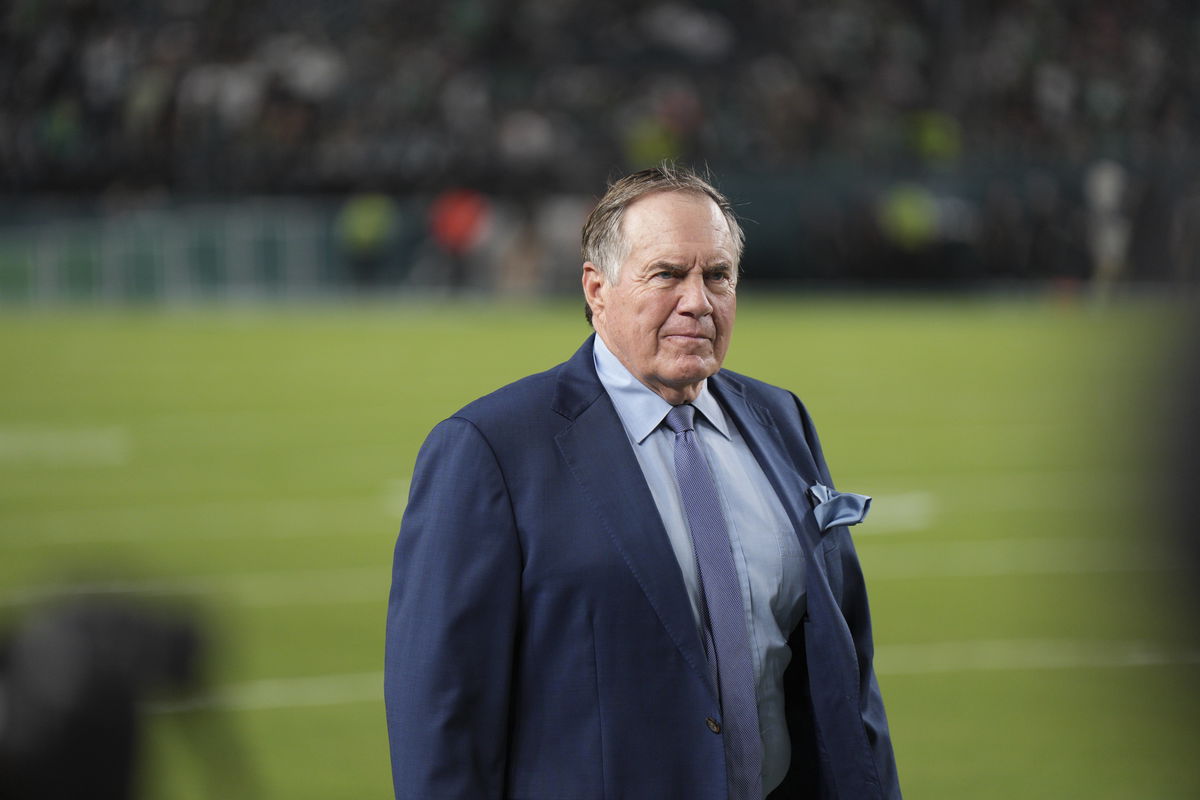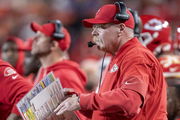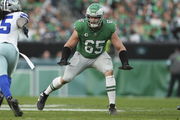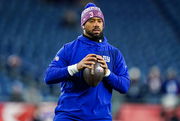
Imago
PHILADELPHIA, PA – SEPTEMBER 16: NFL, American Football Herren, USA analyst Bill Belichick looks on during the game between the Philadelphia Eagles and the Atlanta Falcons on September 15, 2024 at Lincoln Financial Field in Philadelphia, PA. Photo by Andy Lewis/Icon Sportswire NFL: SEP 16 Falcons at Eagles EDITORIAL USE ONLY Icon240916077

Imago
PHILADELPHIA, PA – SEPTEMBER 16: NFL, American Football Herren, USA analyst Bill Belichick looks on during the game between the Philadelphia Eagles and the Atlanta Falcons on September 15, 2024 at Lincoln Financial Field in Philadelphia, PA. Photo by Andy Lewis/Icon Sportswire NFL: SEP 16 Falcons at Eagles EDITORIAL USE ONLY Icon240916077
North Carolina fans, have you ever wondered what happens when the biggest coaching name in football brings his playbook (and his family) to town? This spring, Bill Belichick turned Chapel Hill into the center of college football’s wildest experiment. Everyone buzzed about his move, his $10 million contract, the full NFL brain trust he assembled, and the new swagger injected into Tar Heel football. But while the blue bloods dreamed playoff dreams, the real fireworks were happening behind the scenes, especially when it came to how Belichick leveraged state university rules to straighten the path for his son, Steve, as his handpicked defensive coordinator.
Watch What’s Trending Now!
You see, when UNC made history with that $10 million-a-year deal for Belichick, most fans shrugged off the cost, because if you want a dynasty, you pay for a dynasty. But then came whispers about where the real money was landing. Stephen Belichick, aka Steve, the new DC and, you guessed it, Bill’s son, is now making $1.3 million a year, more than the base salary of any UNC System chancellor and a whole lot more than professors who actually have to assign term papers. For perspective, half of Chapel Hill’s religious studies faculty combined don’t bring home what Steve is making solo, as reported by Reagan Allen.
A little background on how the coach selection process typically works at UNC. The whole thing starts with the school’s athletic director, who runs the search and recommends a candidate for head coach. That name then goes to the university’s Board of Trustees, who review and vote on the proposed hire, especially when it’s a big, multi-million-dollar contract, like the deal Bill Belichick scored. Once trustees sign off, the candidate is sent up the chain for final approval by the university chancellor and, if necessary (like for contracts with complicated salary structures or big guarantees), the UNC System president and Board of Governors. It’s a brilliant policy that prevents centralization of power and enforces checks and balances on multi-million-dollar hires.
ADVERTISEMENT
Now, listen to this. At the heart of the matter is a process that, while common in big-time college sports, exposed just how Bill Belichick stretched these rules. According to Allen, head football coaches generally have “autonomy in selecting their assistant coaches,” but when an assistant coach is making such a humongous amount like Stephen Belichick, it has to be approved by the Board of Trustees. But Steve’s seven-figure deal was never put to a Chapel Hill Board of Trustees vote. Turns out Belichick had more sway in hiring his son than any of the regular chain-of-command gatekeepers did. It raises overdue questions about nepotism, accountability, and, most glaringly, who actually approves the largest contracts on campus. As Allen notes, “Are some of the university’s most lucrative contracts being approved without meaningful oversight?”

ADVERTISEMENT
That’s not just academic hand-wringing either; these numbers are eye-popping. While head coaches wield serious hiring power, it’s rare for universities to exempt such monumental deals from independent review. Yet, here we are. Isn’t it painfully obvious to a layman that ‘Someone other than ‘Dad’ should have a say in a contract of this size.’ The facts don’t get any cozier either. A $1.3 million base salary for Steve (his second college coordinator gig), while Bill pockets $10 million a year plus performance bonuses, and the Tar Heels pony up nearly $12 million in salary for Belichick’s carefully assembled senior staff, including NFL names, family ties, and, most interestingly, a GM model straight out of New England.
ADVERTISEMENT
Want the extra frosting on this nepotism cake? His younger son, Brian Belichick, is also the safeties coach for UNC-CH. He pockets another half a million. The entire hiring pipeline was further lubricated by phrases like “autonomy” and “discretion,” which mean if you have the right resume (say, six rings and the Belichick name), state rules apparently bend around you. The Board of Trustees usually gets final say on campus jobs paying more than the Chancellor’s base salary, but not here. Instead, a family legacy (and a Super Bowl pedigree) fast-tracked the biggest assistant salary in UNC history.
Some will say, ‘It’s worth it, Steve’s got NFL experience, and UNC’s defense will be nasty.’ Maybe. But in the most college-footbally twist of them all, it’s about whether North Carolina just rewrote the playbook on hiring, transparency, and, maybe, what winning at all costs means. Grab your popcorn, Tar Heel Nation, because whatever happens on the scoreboard this season, this soap opera is only getting started.
ADVERTISEMENT
UNC system tightens control after Belichick’s hiring
Following the high-profile hiring of Bill Belichick at UNC-Chapel Hill, the University of North Carolina System stepped in to limit the authority of the UNC-Chapel Hill Board of Trustees in athletic matters. UNC System President Peter Hans issued a directive telling the trustees not to interfere in the negotiation of athletic hirings of Tar Heels. In his memo, sent to UNC-CH Board of Trustees Chair John Preyer and Chancellor Lee Roberts, he described concerns that trustees had been acting independently of the campus administration in areas that fall squarely under the chancellor’s responsibility.
Hans explained that such actions “create substantial legal risk to the University—jeopardizing the North Carolina taxpayers’ money by blurring the lines of actual and apparent authority when these athletic departments negotiate business transactions with third parties.” As a result, Hans temporarily suspended parts of the “delegations of authority” that system policy grants to the Board of Trustees. Going forward, he or his designee must approve all hiring or salary adjustments related to athletic department employees, other than administrative assistants. Even contracts for high-profile positions like the athletic director and head coaches, which still require trustee approval, now need Hans’s sign-off first. Trustees are instructed not to “play any role in negotiation of such actions.”
Top Stories
Illegal Fight Sparks Chaos at Chili Bowl Nationals Leaving Team Member Struggling to Breathe

Caleb Williams Puts Locker Room on Notice After Rams Publicly Announce Bears QB’s Weakness

Andy Reid Announces Double Firing Decision as Patrick Mahomes Outlines Ideal Chiefs OC

Eagles Issue Statement on Lane Johnson’s Retirement Decision After Announcing Update on $96M Star’s Future

Russell Wilson Announces New Citizenship Plans Away From America as Giants QB Makes Career Decision

Tiger Woods’s GF Vanessa Trump and Daughter Kai Steal the Spotlight at His 50th Birthday Bash

This policy change came in the aftermath of reports that the trustees, led by John Preyer, pushed aggressively for Belichick’s hiring, apparently outside of the usual athletic department search process. The move has reshaped how athletic personnel decisions will be managed going forward. While trustees retain an advisory role and influence over certain approvals, Hans emphasized their role should focus on advising the chancellor on substantive matters such as capital planning and operational improvements. The goal, he wrote, is for the Board of Trustees to “keep the total costs of attendance at UNC-Chapel Hill as low as practicable” while steering clear of direct involvement in the athletics negotiations that have sparked controversy.
ADVERTISEMENT
ADVERTISEMENT
ADVERTISEMENT
ADVERTISEMENT

